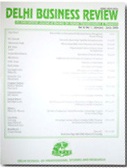|
Guidelines for Reviewers
The barometer to judge the quality of research is the mechanism of peer review. The quality of the peer-review process and the composition of the editorial board is considered to be the principal factor to influence the journal’s reputation, impact factor, and standing in the field. In general, at least two reviewers are solicited in order to carry out the evaluation of a manuscript. An additional review may also be solicited in cases of controversy or strong disagreement regarding the merits of the work.
In addition to fairness in judgment and expertise in the field, peer reviewers have significant responsibilities toward authors, Editor-in-Chief, and readers.
The responsibilities of peer-reviewer toward authors are mentioned below:
- Feedback for value addition: The reviewer should provide a clear and unbiased feedback in a timely manner on the scholarly merits and the value of the work of the author. Also, in order to help and guide the author in improving the research, the reviewer should share documented basis for the opinion shared after review of manuscript. Personal comments or criticism should be avoided by the reviewer.
- Confidentiality: The reviewer should ensure that the review process would be carried out in confidentiality. The reviewer should not share, discuss, or disclose information from the reviewed paper with third parties. Any data or part of work reported in the manuscript submitted for review should not be used by the reviewer for his or her own research.
The responsibilities of peer-reviewer toward Editor-in-Chief are mentioned below:
- Timeliness and responsiveness: The reviewer should ensure that review of assigned manuscript is completed in time. In case a reviewer does not feel that he or she is qualified enough on a particular area to review the assigned manuscript, it should be communicated to the Editor-in-Chief.
- Impartiality and integrity: Whenever a reviewer is assigned a manuscript which is authored or coauthored by a person with whom the reviewer has an obvious personal or academic relationship, the same should be communicated to the Editor-in-Chief by the reviewer. In order to maintain impartiality and integrity in the review process, the reviewer should excuse himself or herself from reviewing the same.
- Compliance: The reviewer should comply with the formal instructions issued by the Editor-in-Chief with respect to the journal’s expectations in terms of parameters like scope, content, and quality of the review. The reviewer should check the probable similarity of assigned manuscript with the content already published by another journal by using the plagiarism software as directed by the Editor-in-Chief. After reviewing the complete manuscript, the reviewer should fill the review score sheet to highlight the relative strengths or weaknesses of the paper and submit the same to the Editor-in-Chief.
- Constructive critique: It is the responsibility of the reviewer to provide a thoughtful, fair, constructive, and informative critique of the assigned manuscript, so that it helps the author of the paper in improving the quality of the research work. The reviewer is also responsible for analyzing the scientific merit, originality, and scope of the work; motivating the author(s) to improve the research paper by working upon the recommendations shared by the reviewer; and also intimating the author(s) regarding the acceptance or rejection of the assigned manuscript on the basis of the criteria shared by the Editor-in-Chief.
- Standards of objectivity: The reviewer is responsible to identify published work which is relevant to the manuscript under review process but has not been cited by the author(s), that should also be communicated to the author(s) to cite such relevant information in the manuscript by the office of the Editor-in-Chief.
|
|

